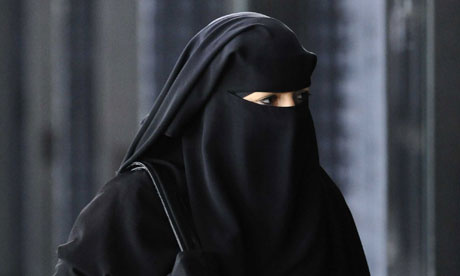You have likely heard freedom of the press referred to as the "first freedom," because it is central to the functioning of a democracy but also because many folk think it is the first freedom listed in the Bill of Rights. While it is part of the first amendment, it is not the first one listed. The first freedom listed is freedom of religion. One might argue that the order is irrelevant but I think it is not. Freedom of religion tells us that the government has no say in the way that we order our values and shape our lives. Freedom of speech and of the press is rendered impotent if the government first has the power to repress or support that most central of individual functions - the way we shape who we are, what we believe, what we value. As with all of the freedoms in the Bill of Rights, religious freedom is aimed primarily at protecting those who fall outside of the centers of power - odd groups, minority groups, those who do not
Like all freedoms, freedom of religion comes with risk. There are religious systems that by their nature are oppressive and destructive. There are religious systems that by their very nature work against human progress. There are even some that promote violence. As a nation we have wrestled with the ways to deal with those issues and have decided - rightly I believe - that before the government can interfere with religious practice, it must show a compelling interest. Fear is not a compelling interest.
Recently, because of the actions of a very small group of jihadists, Muslims have been the object of
fear and of discrimination. One piece that comes up regularly is the wearing of burqas or niqabs which cover everything except the eyes (and sometimes even the eyes) by Muslim women. The arguments go two ways. One says that such treatment of women is oppressive (that is another post). The second is more prevalent now in these days following the terrorist attacks in Paris. It says that these loose fitting garments allow someone to hide weapons which are then easily used to commit violence and prevent others from being able to identify the person wearing the garments.
The fact that the vast majority of terrorists are men and that loose garments that cover the majority of the body are often worn by folk for very practical reasons (spend any time in northern Minnesota in January without everything being covered?) and that in many states in the US, citizens are allowed to openly carry weapons down the center of the street tells us that this is more about fear of the other than about terrorism.
It is worth understanding Muslim discussions and thoughts regarding hijab - modesty of dress for both men and women - in various Muslim cultures and theological traditions but that is basically irrelevant at this point. Many religious groups including orthodox Jews, the Amish, Sikhs, some groups of evangelical Christians, and some Muslim traditions have proscribed ways of dress for both women and men. The question is whether or not the government has the power to define religious expression in terms of dress. Perhaps a more blunt way to phrase the question is whether or not the government has the power to tell you or me what we must wear? If some Orthodox Jew finds it offensive that my wife's forearms are showing as she walks down the street or some Amish folk think my dress is too colorful should they be allowed to enforce their religious understandings? Should a Sunni from Saudi Arabia be able to make my female readers wear a niqab? We would be up on our hind legs in a second if any of those enforcements were to take place. We should feel the same repulsion at the idea that the government can make a woman who believes that her religious commitment to hijab requires her to be covered to uncover herself.
Subscribe to:
Post Comments (Atom)





No comments:
Post a Comment